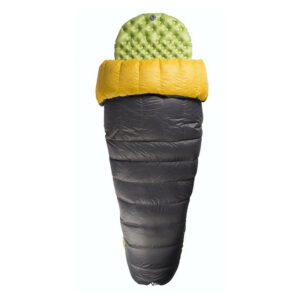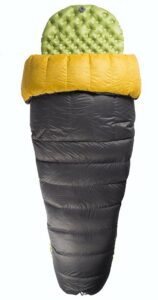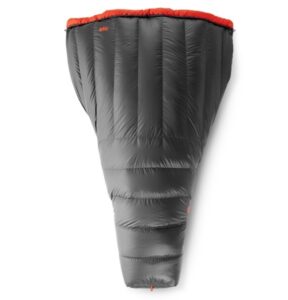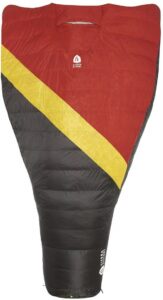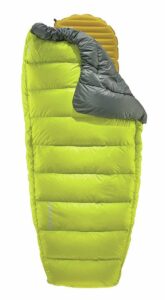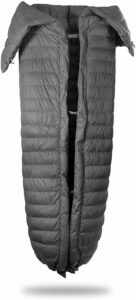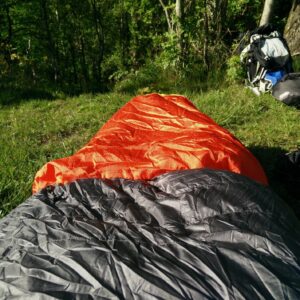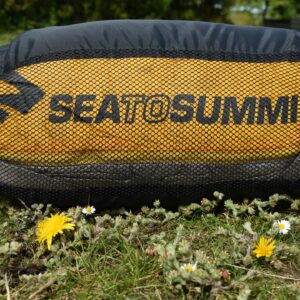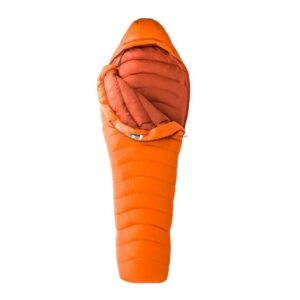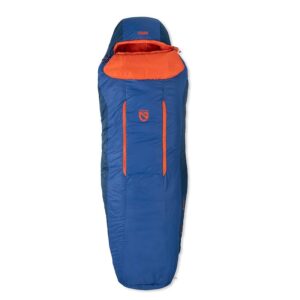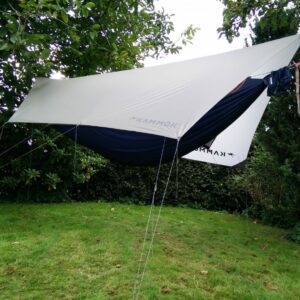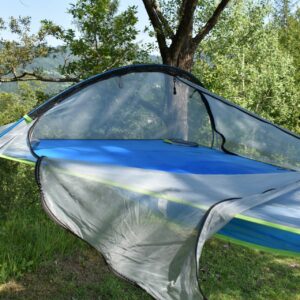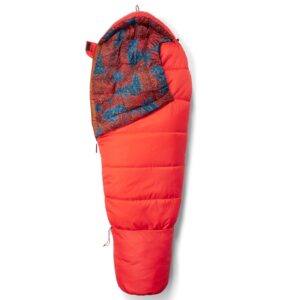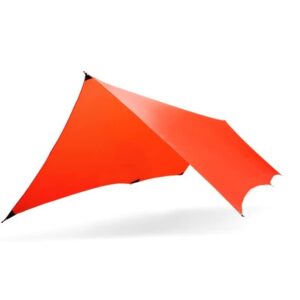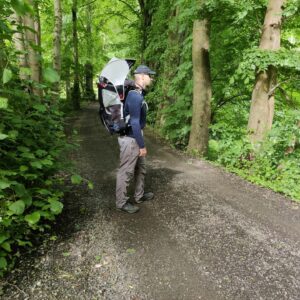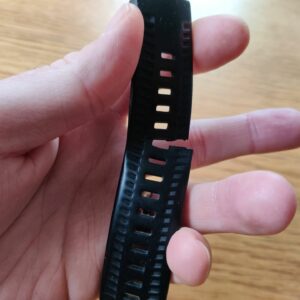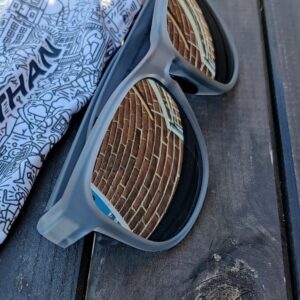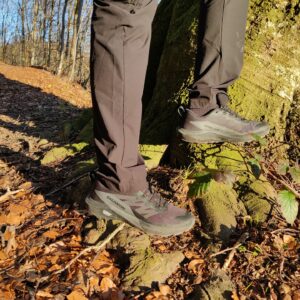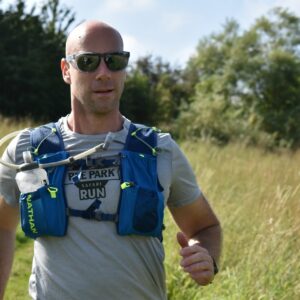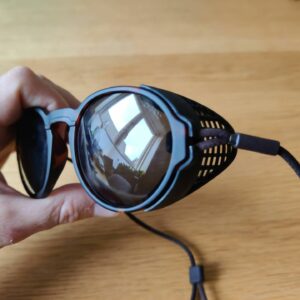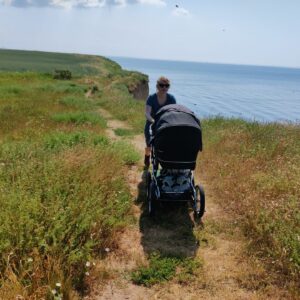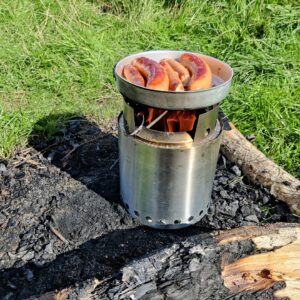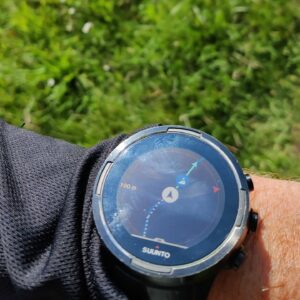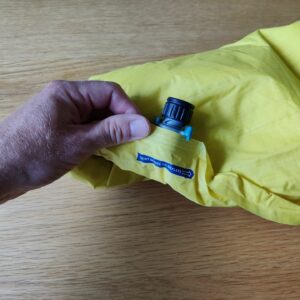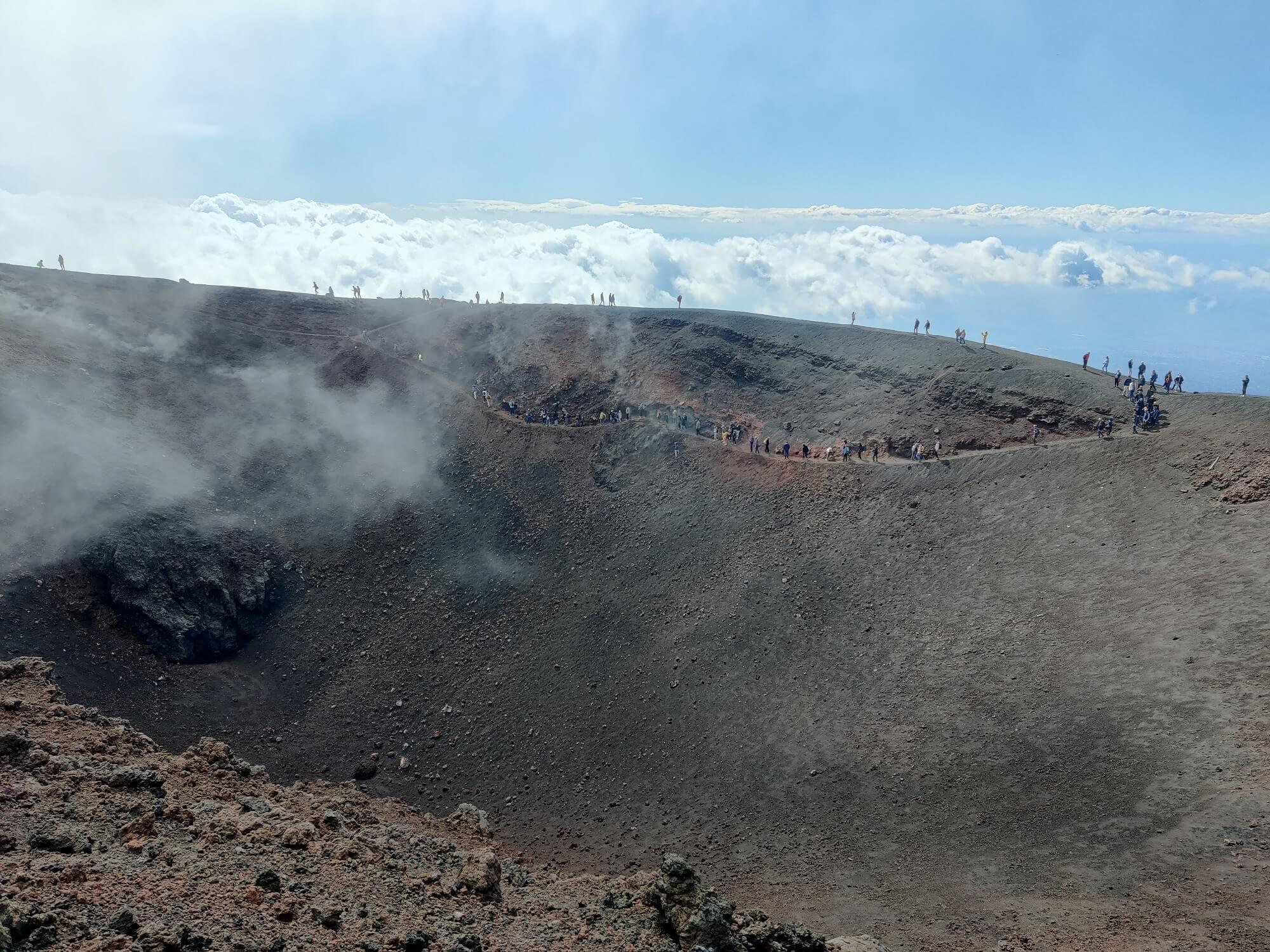Quilts are gaining favor among hikers, backpackers, and mountaineers for their lighter, less bulky, and more adaptable nature compared to traditional mummy sleeping bags. Diverging from a sleeping bag’s enclosed design, a quilt keeps your back in direct touch with the sleeping pad, as its underside is open and lacks a zipper. Nonetheless, it is often sizable enough to be partially tucked under the body. The rationale behind preferring a quilt over a sleeping bag lies in the fact that a sleeping bag’s underside insulation becomes compressed under the user’s weight, rendering it inefficient and merely adding unnecessary weight since compressed insulation offers minimal warmth. Typically, quilts are equipped with a foot box to enhance insulation around the feet and include straps for securing them to a sleeping pad.
Quilts need less fabric and insulation than sleeping bags, making them, on average, 30% lighter and more compact (when packed), even when utilizing identical materials. Their less constrictive fit allows for wearing additional clothing at night for increased warmth. Yet, quilts have their drawbacks when compared to sleeping bags. They necessitate a sleeping pad and are less effective at blocking air drafts; warm air tends to escape when the user moves. Consequently, they are not the best choice for extremely cold conditions, though most quilts provide adequate warmth for three-season hiking.
In our search for the best backpacking quilts for three-season adventures, we focused on products that excel in functionality and offer an outstanding warmth-to-weight ratio. Through our journey, we’ve personally tested these quilts, understanding their unique qualities and limitations, aiming to share insights that resonate with fellow outdoor enthusiasts.
Updated Content
We regularly update our reviews and selections to always recommend you the best products on the market.
Expert Selections
We only list top-tier products. Read how our selections of best hiking products differ from others here.
Links
We use affiliate links and may receive a small commission on purchases at no extra cost to you.
1. Our Backpacking Quilt Picks
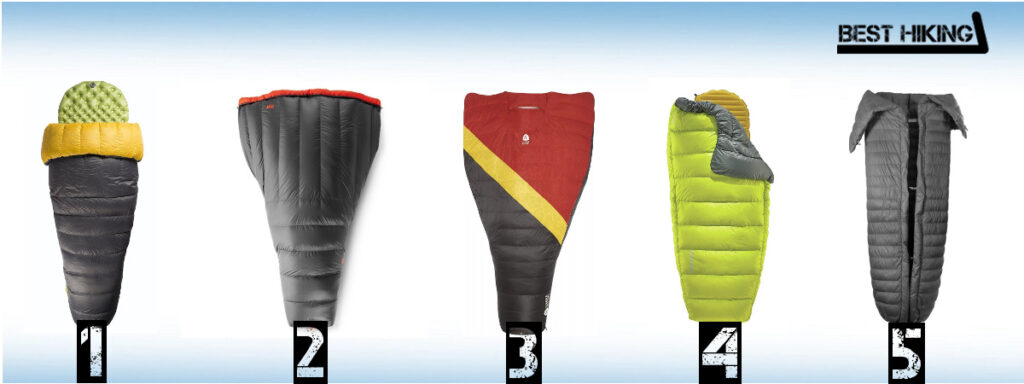
Best Backpacking Quilts
- Sea to Summit Ember III Ultralight Down Quilt
- REI Co-op Magma Trail Quilt 30
- Sierra Designs Nitro Quilt 20
- Therm-a-Rest Corus HD Quilt
- Kammok Firebelly Quilt 30
2. Comparison of Backpacking Quilts
| Feature/Product | Sea to Summit Ember III Quilt | REI Co-op Magma Trail Quilt 30 | Sierra Designs Nitro Quilt 20 | Therm-a-Rest Corus 32 Quilt | Kammok Firebelly Quilt 30 |
|---|---|---|---|---|---|
| Weight | 1 lb. 11 oz. (regular size) | 1 lb. 3 oz. (regular size) | 1 lb. 9 oz. (one size) | 1 lb. 4 oz. (regular size) | 1 lb. 9 oz. |
| Weight (Metric) | 757 g | 538 g | 708 g | 560 g | 708 g |
| Insulation | Down | Down | Down | Down | Down |
| Fill Power | 850+ | 850 | 800 | 650 | 750 |
| Insulation Weight | 1 lbs. 4. oz. | 10.5 oz. | 15 oz. | 12 oz. | n/a |
| Insulation Weight (Metric) | 500 g | 297 g | 420 g | 340 g | n/a |
| Type of Down | Ultra Dry Down | Goose down | DriDown | Nikwax Down | Downtek |
| Outer Material | 10-denier Nylon | Pertex ripstop nylon | 15-denier Nylon | 20-denier Polyester | 15-denier Nylon |
| Packed Size | 7 x 8 in. | 13 x 4.75 in. | 13 x 7 in. | 10 x 6.5 in. | 12 x 7 in. |
| Packed Size (Metric) | 18 x 20 cm | 33 x 12 cm | 36 x 20 cm | 25 x 17 cm | 30 x 18 cm |
| Lower Limit Rating | 14° F (EN Standard) | 30° F | 21° F (EN Standard) | 32° F | 30° F |
| Lower Limit Rating (Metric) | - 10° C (EN Standard) | - 1° C | - 6° C (EN Standard) | 0° C | -1° C |
| Fits up to | 72 in. (regular), 78 in. (long) | 72 in. (Regular), 78 in. (Long), 66 in. (Short) | 75 in. | 72 in. (Regular); 78 in. (Long) | 88 in. |
| Fits up to (Metric) | 183 cm (regular), 198 cm (long) | 183 cm (Regular), 198 cm (Long), 167 cm (Short) | 191 cm | 183 cm (Regular); 198 cm (Long) | 224 cm |
| Footbox | Yes | Yes | Yes | Yes | Yes |
| Straps for Sleeping Pad | Yes | Yes | No | Yes | Yes |
3. The Selection
1. Sea to Summit Ember III Ultralight Down Quilt
Suitable for:
- Hiking
- Mountaineering
- Backpacking
- Climbing
- Camping
- Travelling
The Sea to Summit Ember Ultralight quilt comes in three versions; the Ember I ( temperature rating 50°F), the Ember II (temperature rating 35°F) and finally the Ember III (temperature rating 25°F), which we chose for this list. The Sea to Summit Ember EB III quilt is very light (it weighs merely 757 grams in the regular size) and thus perfect for those who prefer lightweight hiking. Despite its low weight, it offers great insulation – it has the lower limit rating of -10°C by the EN standard. The shell and lining are made of a lightweight 10-denier nylon which provides great durability for the weight. The quilt uses 850+ fill power Ultra Dry Down which is treated with DWR (Durable Water Repellant) so that it resists moisture. Sea to Summit claims that Ultra Dry Down absorbs 30% less moisture than untreated down and is up to 60% better at retaining loft when wet. The Sea to Summit Ember III Ultralight quilt also features a footbox with a drawcord and an adjustable strap system for easy attachment to the sleeping pad. Press studs down the side of the quilt allow you to close the lower half for better insulation. The Sea to Summit Ember Ember III quilt is due to its low weight and superb insulation a great option for hikers, mountaineers and other outdoor enthusiasts who need reliable sleeping equipment for 2.5 -season hiking.
Pros:
- Weight
- Warmth
- Press studs on the side
- Hydrophobic down
Cons:
- /
Also available at:
2. REI Co-op Magma Trail Quilt 30
Suitable for:
- Hiking
- Mountaineering
- Backpacking
- Climbing
- Camping
- Travelling
Pros:
- Weight
- Insulated collar
- High-grade down
Cons:
- /
3. Sierra Designs Nitro Quilt 20
Suitable for:
- Hiking
- Mountaineering
- Backpacking
- Climbing
- Camping
- Travelling
Pros:
- Hood
- Width
- Hydrophobic down
- Hand pockets
Cons:
- /
Video

4. Therm-a-Rest Corus HD Quilt
Suitable for:
- Hiking
- Mountaineering
- Backpacking
- Climbing
- Camping
- Travelling
Pros:
- Hydrophobic down
- Two different sizes
Cons:
- Warmth-to-weight ratio
Also available at:
Video

5. Kammok Firebelly 30
Suitable for:
- Hiking
- Mountaineering
- Backpacking
- Climbing
- Camping
- Travelling
Pros:
- Length
- Can be used as an underquilt
- Footbox
Cons:
- /
Also available at:
Video

4. Buying a Quilt – What is important?
Insulation:
Quilts utilize either down or synthetic insulation. Down insulation is more thermally efficient (with a superior warmth-to-weight ratio) and compresses better than synthetic insulation. However, down insulation also has downsides; it is more expensive and unable to provide good warmth when exposed to moisture (sweat, rain, high humidity etc.). Nevertheless, as quilts are primarily intended for lightweight hiking, we only included quilts with down insulation in this review.
The quality of down insulation is measured by the fill-power index which ranges from 400 (low grade down) to 900 (high grade down). The higher the fill-power index, the better warmth for the weight the insulation provides. Down is often treated with DWR (Durable Water Repellant) so that it becomes better at retaining warmth when exposed to moisture. Such down is referred to as hydrophobic down.
Shell Material:
The shell of a quilt is typically made either of polyester or nylon of certain denier. The higher the denier, the heavier and more durable is the fabric. In order to be lightweight quilts are typically made of low denier fabrics (denier value of up to 30). Generally speaking nylon is more durable than polyester.
Temperature Rating:
While manufacturers often list temperature ratings for sleeping bags by the EN standard (scientific method to determine warmth of a sleeping bag), they rarely do this for quilts. Nevertheless, they do typically list the lower limit temperature (temperature at which an average adult male will be comfortable) which they determine through their own tests.
Size:
For good comfort a quilt should be slightly longer than your body. Some quilts come in two sizes – regular and long. It should be also wide enough to be partially tucked under your body.
Weight:
Quilts are typically very light because they don’t require as much fabric and insulation as sleeping bags. We only included lightweight quilts in this review. To learn why it is important to use lightweight gear, read our article Why hike lightweight.
